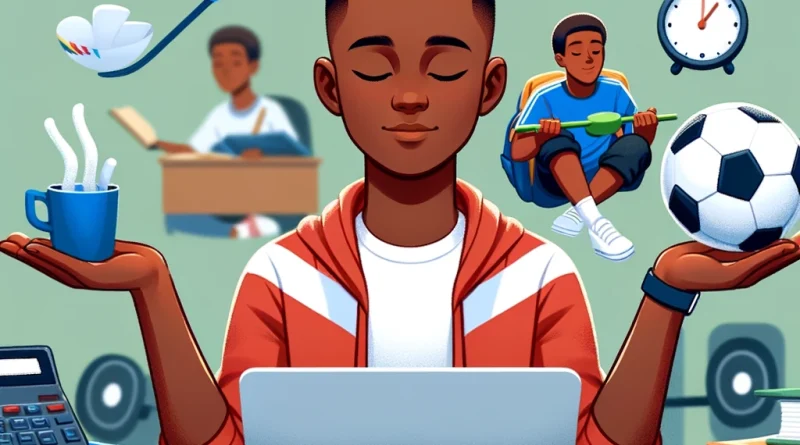How to Balance Academics and Personal Life as a Student
Balancing academics and personal life can be challenging for students, especially when faced with demanding coursework and the need to maintain social relationships. Achieving a healthy balance is essential for long-term success and well-being. Here are some practical strategies to help students in Nigeria manage their time effectively while enjoying a fulfilling personal life.
1. Create a Daily Schedule
- Establishing a routine is key to staying on top of academics and personal commitments. Use a planner or digital calendar to allocate time for studying, attending classes, and social activities.
- Tips for a Balanced Schedule:
- Set specific times for study and leisure activities.
- Prioritize tasks by importance and deadlines.
2. Set Realistic Goals
- Setting achievable goals helps maintain focus and motivation. Break down large academic tasks into smaller, manageable steps, and set deadlines to keep track of progress.
- SMART Goals Approach: Ensure that goals are Specific, Measurable, Achievable, Relevant, and Time-bound.
- Example: Aim to complete a chapter in a textbook before the end of the week.
3. Learn to Say No
- It’s important to recognize when you need to decline invitations or requests to avoid overcommitment. Saying “no” can help maintain focus on academic priorities without neglecting personal well-being.
- How to Politely Decline: Express appreciation for the invitation and briefly explain your academic obligations.
4. Incorporate Breaks and Leisure Activities
- Taking regular breaks can improve productivity and reduce burnout. Use downtime for hobbies, socializing, or physical activities to recharge your mind.
- Activities to Consider: Exercising, reading, exploring a hobby, or spending time with friends.
- Pomodoro Technique: Work for 25 minutes, followed by a 5-minute break. After four cycles, take a longer break.
5. Stay Healthy
- A healthy body supports a healthy mind. Maintain a balanced diet, get regular exercise, and prioritize sleep to enhance academic performance and overall well-being.
- Healthy Lifestyle Tips: Eat nutritious meals, stay hydrated, and get at least 7-8 hours of sleep per night.
- Mindfulness Practices: Consider meditation or yoga for stress relief.
6. Avoid Procrastination
- Procrastination can lead to last-minute stress and poor academic performance. Develop strategies to overcome procrastination, such as breaking tasks into smaller steps and setting deadlines.
- Anti-Procrastination Techniques: Use the 2-Minute Rule—if a task takes less than two minutes, do it immediately.
7. Utilize Campus Resources
- Universities often provide resources like counseling services, study skills workshops, and peer mentoring programs. Make use of these resources for additional support.
- Resources to Explore: Academic advisors, student wellness centers, and online study tools.
8. Build a Support System
- Surround yourself with friends and family who understand your academic goals and can offer support when needed. Joining student organizations or forming study groups can also help build a support network.
- Stay Connected: Regularly check in with family and friends, even if it’s just through phone calls or messages.
9. Practice Time Management Skills
- Effective time management can help balance academic workload with personal activities. Learn how to prioritize tasks and allocate time for different activities.
- Tools for Time Management: Use apps like Google Keep for to-do lists, Trello for project management, and RescueTime for tracking productivity.
10. Seek Help When Needed
- Don’t hesitate to seek help if you feel overwhelmed. Talk to a counselor, academic advisor, or a trusted mentor when stress becomes unmanageable.
- Warning Signs to Watch For: Persistent feelings of anxiety, fatigue, or a decline in academic performance.
Conclusion
Balancing academics and personal life as a student is all about setting priorities, managing time wisely, and taking care of your mental and physical health. By implementing these strategies, students can achieve academic success without sacrificing their personal well-being.




